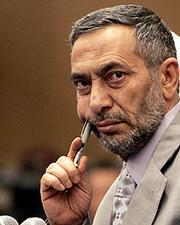LEBANON, N.H. (AP) - As grateful as she was when her sister-in-law offered in October to donate a kidney on her behalf, Kathy Niedzwiecki didn't believe for one second her prediction that it would happen before Christmas.
"I'm always the cup half empty, she's always the cup half full. Always," Niedzwiecki said Thursday, three days after she received a new kidney in the first success for a national pilot program that helps arrange so-called kidney exchanges.
The United Network for Organ Sharing started a pilot program in October to facilitate "kidney paired donation," where someone donates a kidney to a stranger so their friend or loved one can receive a compatible organ in return. Though regional alliances among transplant centers have led to hundreds of such donations in recent years, the national program is expected to significantly boost those numbers.
The pilot project's first transplants were performed Monday at Dartmouth-Hitchcock Medical Center in Lebanon, N.H., and Barnes-Jewish Medical Center in St. Louis.
Rebecca Burkes, of St. Louis, donated a kidney to Niedzwiecki, while Niedzwiecki's sister-in-law, Catherine Richard, donated a kidney to Burkes' fiance, Ken Crowder. Volunteer pilots met in Pittsburgh and swapped containers holding the organs.
The New Hampshire participants described their experience at a news conference at the hospital Thursday, along with their surgeon and representatives from the New England Program for Kidney Exchange and Angel Flight New England, the pilots' group.
Niedzwiecki, 52, of Pelham, N.H., said she went to her doctor a few years ago complaining of headaches only to find out she was in Stage 3 kidney failure. She didn't want to go on dialysis - "I really wanted a cure, not a Band-Aid," she said - and was told her chances of receiving a kidney from a deceased donor were slim.
Though she didn't hold out much hope that a paired donation would pan out, Richard was much more confident. Wearing a New England Patriots jersey, she joked that the only thing that gave her pause was having to miss Monday's game.
"Most of the way, I was excited," she said, then jokingly acknowledging some lingering pain, added, "Though I'm not too excited right now."
Richard, 45, of Henniker, N.H., who has been married to Niedzwiecki's brother for 14 years, said the two always have been close.
"I feel like my kidney is in her," she said.
Fewer than 17,000 kidney transplants are performed in the U.S. each year, and just over a third are from living donors - relatives or friends who happen to be biologically compatible. About 760 of those in the last three years were through kidney paired donation, but specialists predict that number could increase to 2,000 to 3,000 more transplants a year.
Under the new project, 77 transplant centers submit information about patients and their would-be donors to the database, which periodically alerts centers to potential matches with people from other parts of the country.
Dr. David Axelrod, who performed the New Hampshire surgeries, said the national network will supplement the many existing regional alliances that mix and match patients and donors.
"As we all think about health care reform, there are very few things in health care that we can point to that both save lives, make people better and actually cost less money. Kidney transplantation is one of them," he said.
Richard, who works at Concord Hospital, wiped away tears as she described always enjoying the spirit of hope she's seen there at Christmas time - and how she now has seen it from a different perspective.
"This is an awesome Christmas gift. I don't think anybody could ever top this," her sister-in-law added.

